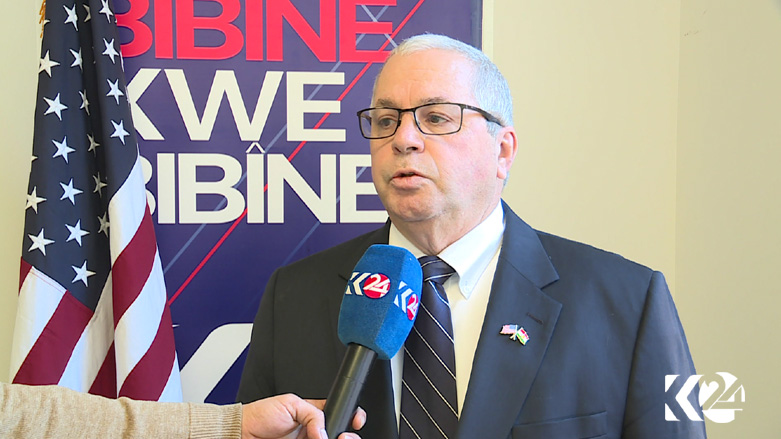US needs to see Kurds as partner in Iraq

WASHINGTON DC, United States (Kurdistan 24) – Retired US Army intelligence and Pentagon analyst, Paul Davis, who focused on Kurdish issues after 2003, spoke recently with Kurdistan 24.
Davis took issue with the State Department, the agency charged with implementing US policy toward Iraq and the Kurds.
“The State Department’s problem is that they don’t understand the difference between the Kurdistan Region and the rest of Iraq,” Davis said.
Davis sees significant dangers in the current situation. Iran’s “land-bridge” to the Mediterranean already exists now, he stated. There is no group of people in Iraq who will stop Iranian forces from moving through the country to Syria and its borders with Jordan and Israel, where Tehran can threaten two important US allies.
Davis believes that the administration’s “one-Iraq” policy and its focus on securing the election of Iraqi Prime Minister Haidar al-Abadi are “counter-productive” and contradicts key elements of the National Security Strategy (NSS) that the White House just released.
Above all, as Davis noted, “Abadi is under the complete control of Iran”—which the NSS identifies as a “rogue regime,” a major danger to the US and its allies, and “the world’s leading state supporter of terrorism.”
Moreover, the US has a poor track record in picking Iraqi prime ministers, he said. “They have not chosen wisely. Nobody—Maliki, Abadi—has been a strong ally of the United States.”
Asked if he thought the Kurdish street might be losing trust in the US, Davis replied, “Absolutely, and they are right to do so.”
“The United States’ reaction to what happened was 100% wrong,” he said. “I don’t know why. Maybe, it was McGurk; maybe, it was the State Department’s past actions.”
However, Davis added that the Kurdish people “also have to understand that there is a lot of support for them within the US government, particularly within Congress and the Department of Defense.”
“Wait,” he advised. “This will turn around, hopefully.”
Asked how he thought the Kurdish leadership should respond to the present situation, Davis replied, “They need to do exactly what they’re doing right now, which is to continue to show the world that they are willing to talk to Baghdad; that they are willing to negotiate; that they are willing to ask for help” to secure those negotiations.
“And if the United States doesn’t do it,” Davis suggested, “Russia will. They do have a tie to Iran. Economically, they do have a tie to Turkey.”
“The United States has to come to the understanding that as long as the Kurds are willing to negotiate and talk, and be our partners, that we should be theirs,” he concluded.
Editing by Nadia Riva
